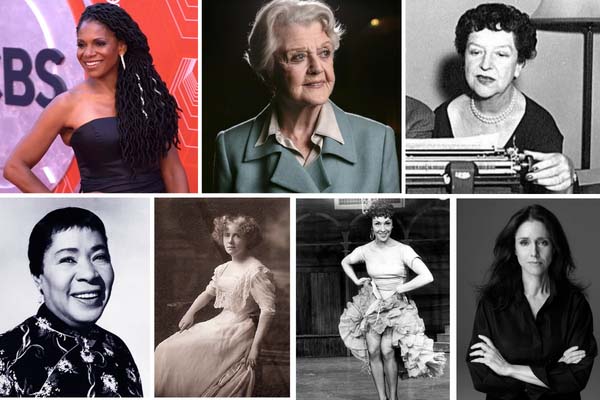
March is “Women’s History Month,” and we have some fun facts about women in American Theatre that you may not know! For example, did you know the “Tony Award” isn’t named after an “Antonio”? In fact, the award is named after an “Antoinette”! Antoinette Perry was born in 1888, and from a very young age, aspired to be an actress. In 1928 she shifted her focus to directing and producing and helped found the American Theatre Wing. The American Theatre Wing was “dedicated to supporting excellence and education in theatre” and played an important role in charity and relief efforts during World War I and World War II. After Antoinette’s death in 1946, the American Theatre Wing committee created the Antoinette Perry Award for Excellence in Broadway Theatre in her honor. (AKA, the Tony!)
On the topic of the Tonys and Women’s History Month, let’s spotlight some of the women in theatre who inspire us, and who have made a truly dramatic impact on Broadway!
Juanita Hall was the first African American woman to win a Tony Award. She won in 1950 for Best Featured Actress in a Musical for South Pacific.
In 1956, Frances Goodrich was the first woman to win Best Play for The Diary of Anne Frank.
Chita Rivera holds the title as the performer with the most Tony nominations. In 2015 she was nominated for the 10th time for her performance in The Visit.
The late great Dame Angela Lansbury has hosted the Tony awards more than anyone else! She hosted the award show five times in her career. Coincidentally, she has also WON five Tonys!
1998 was a historical year for women on Broadway. Julie Taymor and Garry Hynes won Tony Awards for Best Direction of a Musical and Best Direction of a Play respectively. This was the first time a woman won in either of these categories! Julie won for Lion King, and Garry won for The Beauty Queen of Leenane.
Audra McDonald holds the record for the most performance wins than any other actor. She boasts a total of six Tonys!
These are just some of the amazing trailblazing women in American Theatre, but there are plenty more to discover! If you’re interested in learning more, PLAYBILL has a wonderful interactive Women’s Theatre History timeline to peruse.
To learn more about how the Drama Kids program can provide a quality after-school drama education to your child, contact your local DK today!! Find a Drama Kids near you today!
